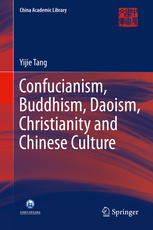

Most ebook files are in PDF format, so you can easily read them using various software such as Foxit Reader or directly on the Google Chrome browser.
Some ebook files are released by publishers in other formats such as .awz, .mobi, .epub, .fb2, etc. You may need to install specific software to read these formats on mobile/PC, such as Calibre.
Please read the tutorial at this link: https://ebookbell.com/faq
We offer FREE conversion to the popular formats you request; however, this may take some time. Therefore, right after payment, please email us, and we will try to provide the service as quickly as possible.
For some exceptional file formats or broken links (if any), please refrain from opening any disputes. Instead, email us first, and we will try to assist within a maximum of 6 hours.
EbookBell Team

4.8
74 reviewsThis book collects the 25 most important articles written by Professor Tang since the 1980s, dealing extensively with issues of Confucianism, Buddhism, Daoism, Christianity and Chinese culture. In these articles, Professor Tang proves his value as a worthy successor to the Chinese philosophical tradition, while also open to the latest trends of thought both at home and abroad.
The late Professor Tang Yijie (1927-2014) was a prominent professor at Peking University and China’s top scholar on philosophy and Chinese studies. He spearheaded the Confucian Canon project (**), which seeks to compile all known classical works on Confucianism, comparable in scope and significance to the Complete Library of the Four Treasuries (****), the largest collection of books on Chinese history, which was commissioned by the Qianlong Emperor in the 18th century. Throughout his life, Professor Tang published scores of books and more than one hundred articles, offering enlightening insights into how to deal with issues that have historically troubled and continue to trouble people in modern society.
Among his numerous innovations, Professor Tang is especially remembered for introducing the concept of “harmony in diversity”(****). In the context of “the clash of civilizations” championed by Samuel P. Huntington, Tang argued for harmony in diversity, holding that this principle can offer some clues to help enable peoples, nations, and regions with different cultural traditions to develop together while remaining unique.
note: * represents Chinese character, please refer to BCC file.